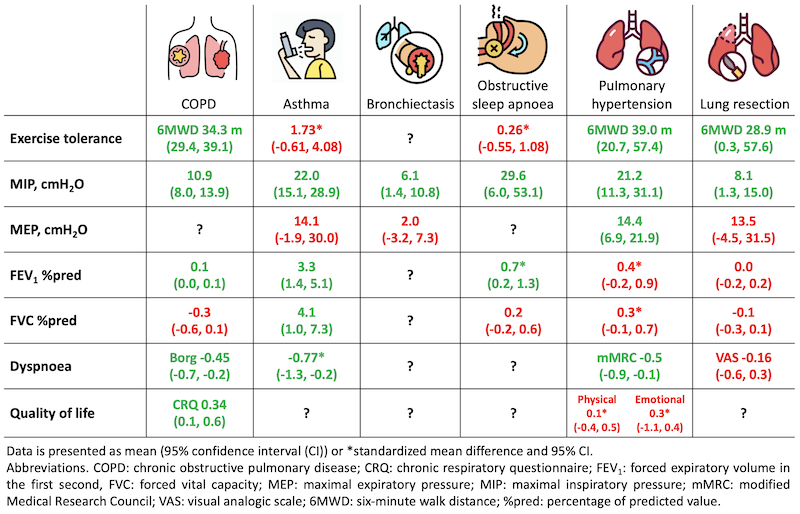Abstract
There is some controversy regarding the efficacy of inspiratory muscle training (IMT) in to improve exercise tolerance, lung function or symptoms. Aim: to determine the effect of IMT across different CRDs.
An overview of systematic reviews (SRs) was performed, including SRs on interventions, with or without meta-analysis, that have considered randomized control trials (RCTs) in adults with CRDs that performed IMT. Databases Embase, PubMed/MEDLINE, Web of Science, Cochrane Central Register of Controlled Trials, and Epistemonikos were reviewed from their inception to Jan 15th, 2023. Two reviewers screened titles and abstracts, extracted data, and assessed methodological quality. SRs with the highest level of quality were chosen to report the analysed outcomes.
22 SRs were included, the conditions analised were chronic obstructive pulmonary disease (COPD), asthma, bronchiectasis, obstructive sleep apnea (OSA), pulmonary hypertension (PH), and pulmonary resection. Figure 1 summarises the effects of IMT in different outcomes. The evidence was mostly graded as low certainty.
The IMT improved maximal inspiratory pressure in all CRDs; exercise tolerance in COPD, PH and lung resection; lung function in asthma and OSA; dyspnea in COPD and asthma; and quality of life in COPD. However, these results have to be analised with caution due to the heterogeneity of evidence certainty.
